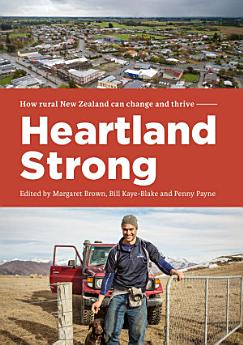Heartland Strong: How rural New Zealand can change and thrive
About this ebook
There is no getting away from the challenges to the rural sector. But rural communities have shown themselves to be resilient over many years, and that is likely to continue. Most importantly, people in rural communities, in townships and on farms, have options.
This important book, based on years of research, shows how, and provides useful insights into, the ongoing process of change in rural communities and the resources on which they draw to support their resilience. It offers a positive message and blueprints for progress.
About the author
Dr Margaret Brown, senior social scientist in the People and Agriculture team at AgResearch, is based in Palmerston North. Margaret has a bachelor of education (Hons) and a PhD in education from Massey University. She has an extensive background in farm systems, as she co-owns and manages a mixed farming enterprise in Manawatu with her husband and son. Margaret currently leads the Resilient Rural Communities research programme under which this research was conducted, which looks at ways to co-design, construct and evaluate pathways that rural communities can use to build resilience capability.
Dr William (Bill) Kaye-Blake, chief economist at PricewaterhouseCoopers New Zealand (PwC NZ), is based in Wellington. He has been studying food and agriculture for 25 years and is currently involved in interdisciplinary and international research on agri-food value chains, overseas consumer trends, and pathways for sustainable and resilient agriculture. Bill leads the economics consulting team in Wellington for PwC NZ and has contributed to consulting projects in Australia, China, New Zealand and the United States. He is also an honorary associate professor at Lincoln University and lectures in the executive MBA programme at Massey University.
Penny Payne, social scientist in the People and Agriculture team at AgResearch, is based in Hamilton. She has a master’s degree in community psychology and has studied at Victoria University of Wellington, the University of Waikato and City University of Hong Kong. Current research areas include resilience, extension and education. Penny is currently evaluating extension programmes in climate change and biosecurity, targeting community, industry and schoolchildren. She also specialises in social network analysis, mapping relationships to explain and increase network resilience. Penny has worked with diverse audiences including rural communities, government, industry, not-forprofits, schoolchildren and regulatory organisations.







